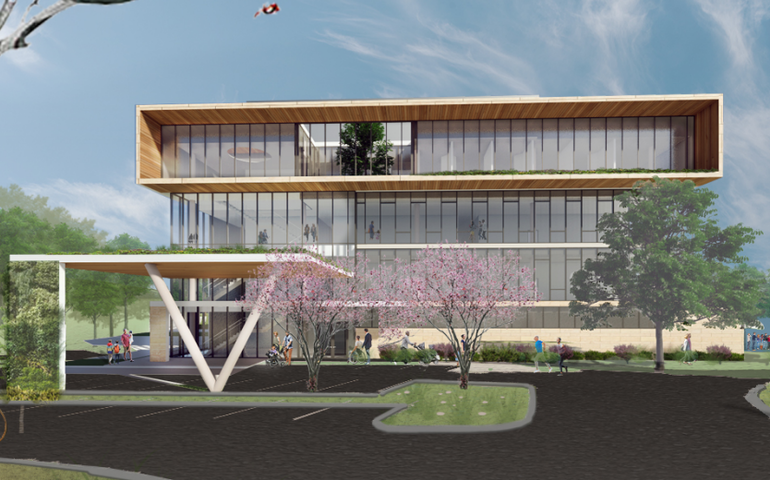With state officials reviewing Mass General Brigham’s proposed ambulatory care expansion and on the heels of a House vote for legislation that would add a new layer of oversight to hospital expansions, the health system is making its case directly to television viewers through an ad touting the project.
The commercial says that the hospital system’s proposal to construct new ambulatory care centers in Westborough and Woburn and to expand an existing facility in Westwood “would bring primary care, specialty care and behavioral health services closer to our 227,000 patients who live in these communities — care that is the same Mass General Brigham quality, but costs less and patients don’t have to drive through traffic into Boston to receive.”
Encouraging viewers to “take action,” it directs them to a website where they can view information about the project and sign a petition supporting it.
The website and television ad stress demand for the new locations among MGB’s existing patient population who could receive care closer to home, and the website says that ambulatory centers provide care that is less expensive than services received in a hospital, where fixed costs — like those to maintain emergency rooms and inpatient beds — are higher.
The messaging contrasts with that put forward by project opponents, including other health care organizations and business groups who have come formed the Coalition to Protect Community Care.
The coalition, which has its own online form for community members to share their views with lawmakers, warns of the potential for higher prices because Mass General Brigham is a more expensive provider and argues that the move would threaten the financial stability of existing local health care providers by drawing away comercially insured patients.
The coalition backed a bill the House passed on a 158-1 vote last month that seeks to impose additional scrutiny on health system expansions.
The bill, championed by Speaker Ronald Mariano, would require hospital systems applying to expand into an independent community hospital’s service area to include a letter of support from that community hospital.
It would also give the Health Policy Commission authority to investigate the cost and market impact of hospital expansions, in addition to the review required through the Department of Public Health’s determination of need program.
Attention to the MGB project comes as health care spending in Massachusetts has, for the second year in a row, outpaced a growth benchmark set under a 2012 cost control law and as the health care system continues to grapple with the strains of the COVID-19 pandemic.

